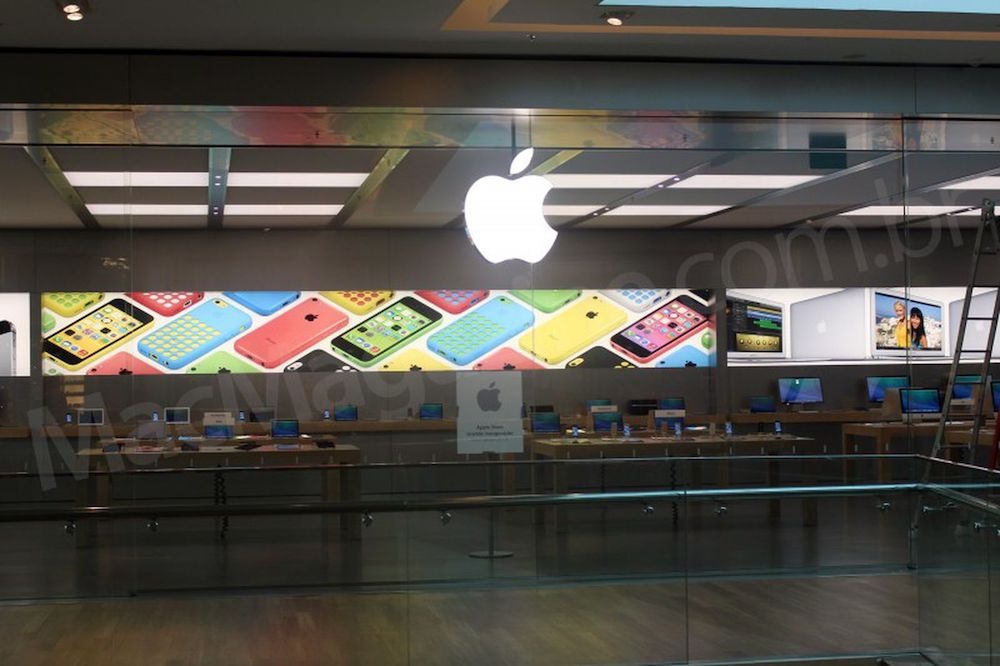Apple is under fire globally for implementing an iPhone power management feature that throttled performance on devices with degraded batteries, but courts in Brazil appear to be taking the tech giant's side on the matter.
In February, the French government fined Apple $27 million for a 2017 software update containing a battery management that throttled processor performance. And in March, Apple agreed to pay $500 million in the U.S. to settle iPhone slowdown lawsuits.
Courts in Brazil, however, seem to think that Apple did nothing wrong, as local media outlet Tilt reports.
A 2018 suit leveled by the Brazilian Institute of Computer Science and Law (IBDI) requested compensation to the tune of 986.7 million Brazilian reals (about $212 million), but was dismissed by a federal court without considering the evidence. The judge in that case decided that the institute should have held an assembly of its members before taking action.
An appeal by the Federal District Public Ministry (MPDFT) was likewise defeated. In that case, Brazilian Judge João Egmon explicitly stated that there was no obvious planned obsolescence on Apple's part, adding that he believed Apple implemented performance throttling to mitigate random shutdowns and preserve usability.
Egmon added that he believed Apple did enough to comply with local consumer protection laws by offering discounted battery replacements in Brazil, as it did in other countries.
Two more appeals were filed by the IBDI in 2020, but based on the past court decisions, it doesn't look like they will gain any traction. The case could end up in Brazil's Supreme Federal Court, where plaintiffs will likely lean on recent international rulings in a bid to overturn lower court decisions.
The IBDI is not the only group in Brazil to scrutinize Apple's iPhone policies. Brazil's Institute for Consumer Protection (IDEC) considered taking action on about 350 reports from consumers who experienced slowdowns, but decided not to take the issue to court, citing the concurrent IBDI lawsuit. The Ministry of Justice's National Consumer Secretariat and public prosecutors in Rio and Paraná opened independent investigations into Apple's practices, but those inquiries were closed after Apple introduced its battery replacement program.
On Friday, Procon-SP, a group linked to the São Paulo state government notified Apple that it is mulling action against the company in light of its U.S. settlement.
"Proconsp will ask Apple to inform if it also intends to pay the same indemnity to Brazilian consumers as it paid to North Americans; since the product is the same, the damage and injury are identical," said Fernando Capez, executive director at Procon-SP.
Apple devices accounted for about 12.38% of Brazil's smartphone market in January 2020. The Cupertino tech giant also manufactures some products at Foxconn facilities in the country.
 Mike Peterson
Mike Peterson







-m.jpg)






 Wesley Hilliard
Wesley Hilliard
 Malcolm Owen
Malcolm Owen
 Andrew Orr
Andrew Orr
 William Gallagher
William Gallagher
 Sponsored Content
Sponsored Content
 Christine McKee
Christine McKee

 Thomas Sibilly
Thomas Sibilly







50 Comments
I don't think anyone is denying that Apple's solution to battery health issues was inappropriate. Rather the problem came from the lack of communication of how and why it was implemented. Someone suggested that instead of throttling the device without notice Apple should have presented a pop-up advising the customer of what was going to happen and offered an option to let the throttling happen or not.
And anyone who actually believes it was an evil act of planned obsolescence by Apple to promote sales of more iPhones needs their head examined because they probably believe the Earth is flat too.
Good to know there are judges somewhere that understand the case and Apple’s reaction thoroughly. Such creatures are pathetically hard to find in the US.
It’s not a matter of taking sides, but of breaking laws.
They’re just saying that no Brazilian laws were broken.